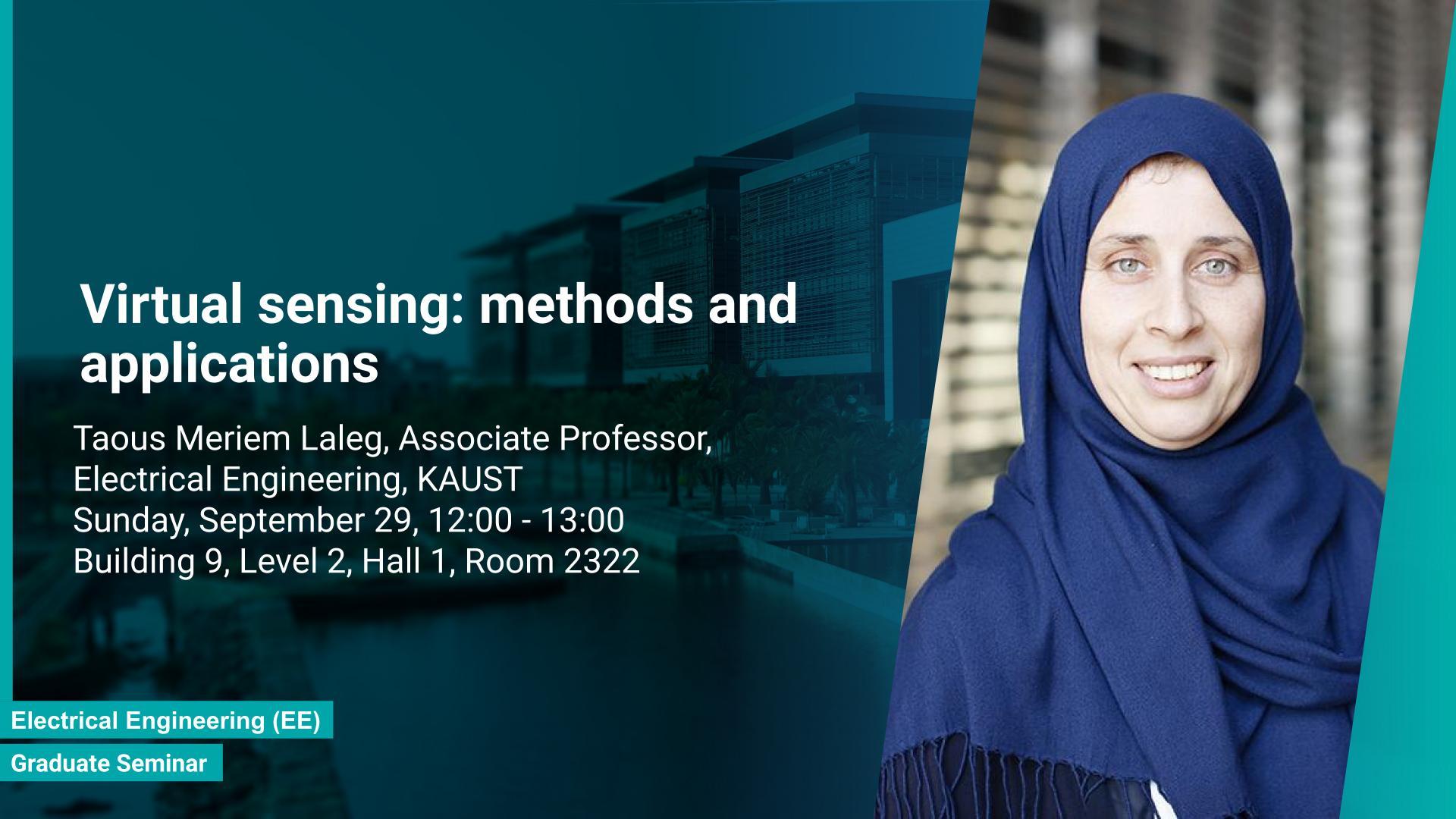Abstract
Due to the inherent complexity, physical or economical constraints, a number of important physical and biological systems are inaccessible. Only few, often indirect, experimental data are available to extract information or to manipulate and control the system. Introduced as a promising technology to respond to the growing need for reliable, accurate, fast, robust and low-cost sensing strategies, virtual sensors are gaining importance in several fields. These sensors combine the available data with effective estimation methods and algorithms to access non-measurable variables of interest. They are presented as an alternative to hard sensors when the latter cannot be used for physical or economical constraints.
In this talk, I will present an overview of the research activities in the Estimation Modeling and ANalysis group at KAUST around the development of virtual sensors. I will illustrate the impact of our proposed methodologies to the optimization and control of sustainable desalination processes and health monitoring.
Brief Biography
Meriem Laleg is an associate professor in the division of Computer, Electrical and Mathematical Sciences and Engineering at KAUST and member of the Computational Bioscience Research Center (CBRC). She joined KAUST in 2011 after being a postdoctoral fellow and a researcher at the French Institute for Research in Computer Sciences and Control Systems (INRIA) in Bordeaux. She received her Ph.D. in Applied Mathematics in 2008 from INRIA and Versailles University. Professor Laleg’s work is in the general area of mathematical control theory, systems modeling, signal processing, and their applications. Her primary research goals are directed towards developing effective estimation methods and algorithms to understand complex systems, extract hidden information and design control and monitoring strategies. Her research projects are motivated by real-world problems in engineering and biomedical fields. She was elevated to an IEEE senior member in 2015. She won the best paper awards with her students at the IEEE International Conference of the IEEE Engineering in Medicine and Biology Society in 2018 and the IEEE International Conference on Control Engineering and Information Technology in 2015. She has been recognized for being among the three finalists in the academic of distinction category (engineering) of the leadership excellence for women awards in 2018. She is a member of the IEEE Control Conferences Editorial Board (CEB) and a technical committee member at the International Federation of Automatic Control (IFAC). She is also a member of the steering committee of KAUST women in data science.
